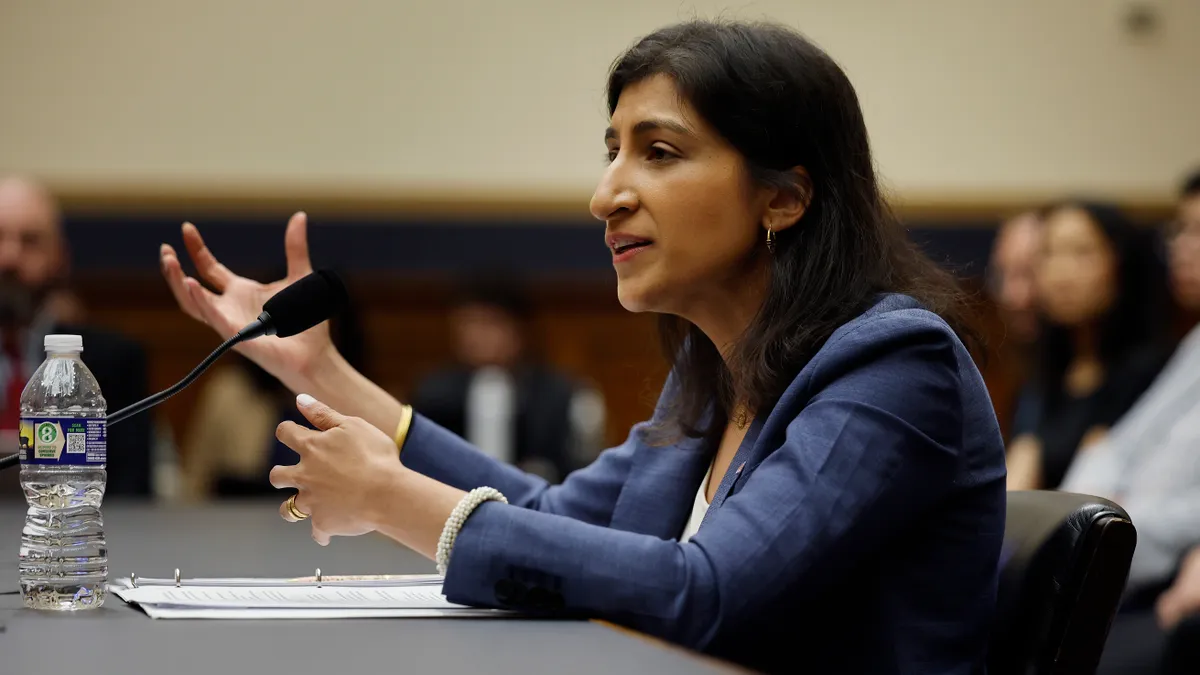The Federal Trade Commission last week finalized a rule banning the buying or selling of fake reviews and testimonials.
Reviews can massively influence a customer’s online shopping experience. About 9 in 10 consumers read reviews to help make their purchase decisions, according to a 2023 PowerReviews study. Fake reviews, misleading testimonials and biased recommendations throw a wrench into that customer journey and erode customer trust.
“You're placing a lot of faith in in what you read, and if what you read turns out to be biased or if the review was incentivized by the company itself, you're going to get some pretty pissed off consumers when they get the product and it doesn't work, or it's not as expected,” Matt Schwartz, policy analyst with Consumer Reports, told CX Dive.
The rule was welcomed by businesses plagued by fake reviews on their sites as well as consumer rights groups that expect it to protect customers and businesses alike by ensuring reviews work as intended.
The most notable aspect, experts said, is the ability to more easily penalize bad actors. With the finalized rule, the FTC can seek civil penalties up to $51,744 per violation against offenders.
“By finalizing the rule, [the FTC is] going to make it way easier to actually punish folks and receive consumer redress and do so in a single action,” Schwartz said. “Folks have so much trust and reviews, and it's critical that they be as unbiased and accurate as possible.”
“The FTC is prepared to really show its teeth here,” said Anoop Joshi, chief trust officer of Trustpilot. “It's great for consumers, because it's going to give consumers more confidence in the reviews they see online when a regulator like the FTC is taking notice and going to take action.”
It’s also good for businesses, Joshi said.
“It’s in the interest of business to ensure that there's a level playing field and for good businesses to be able to thrive based on the services that they're delivering,” he said. “A world where in order to succeed on review platforms, you have to be engaging in misleading practices is not a world that's good for businesses, right? Any actions to tackle fake reviews are helpful for businesses at large.”
Does it go far enough?
Consumer Reports, which submitted comments during the rule-making process, sees the rule as a great first step — but it believes there is more work to be done.
“We maybe would have hoped that they could have addressed third-party review platforms like Google or Yelp or Tripadvisor to actively do more to monitor their services for fake reviews and make those third-party platforms responsible when they aren't doing enough,” Schwartz said.
And while the most notable aspect of the rule is the potential fine the FTC can levy, the biggest question is enforcement, says Wael Jabr, assistant professor of supply chain and information systems at Penn State University.
“It's going to be difficult to do that, given the massive scale of reviews and the recent push by the Supreme Court to limit the powers of enforcement agencies,” he said in an email.
With the Supreme Court striking down the Chevron doctrine in June, federal regulations designed to protect consumers are expected to frequently come under fire, as businesses who disagree have more leeway to challenge to challenge agency mandates in court.











